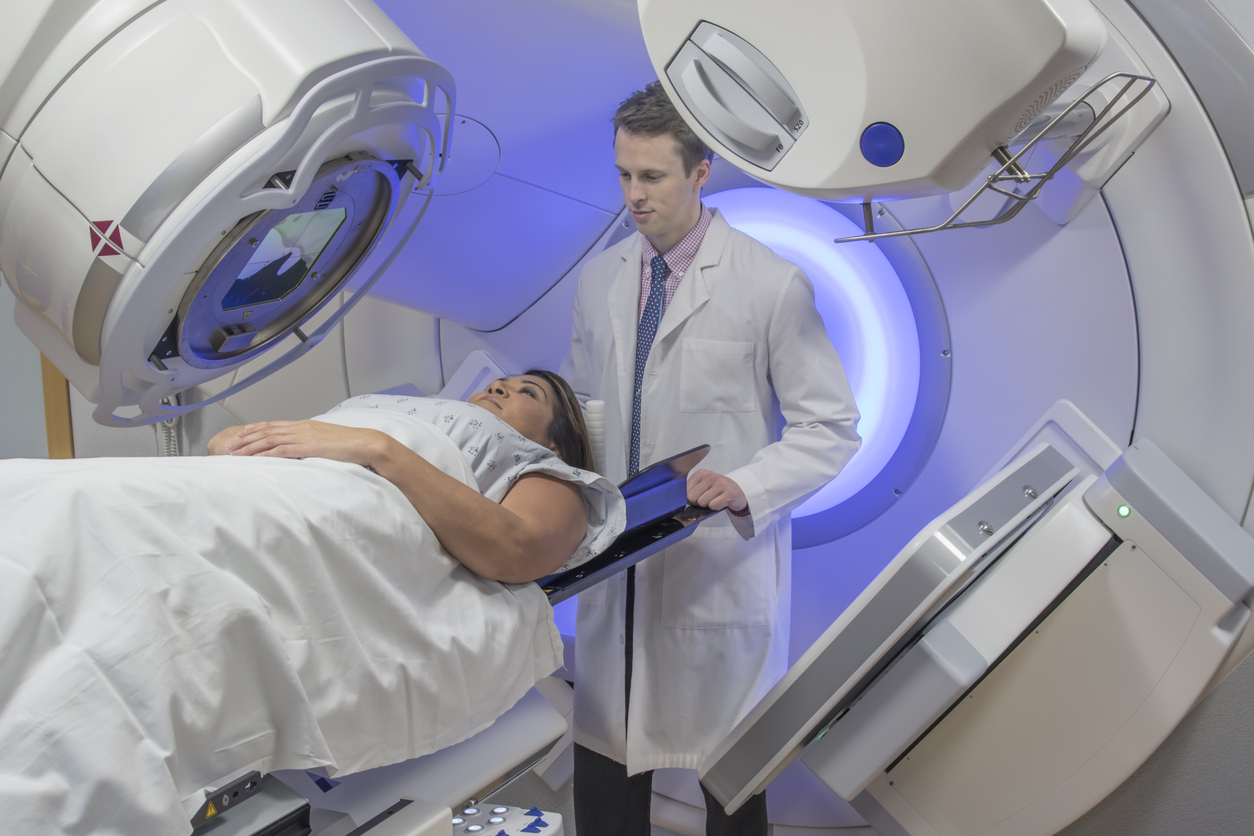Side-effects from radiotherapy to the head and neck area

Sore or dry mouth
Radiotherapy can cause a sore mouth and throat because the cells that line these areas are very sensitive to treatment. Radiotherapy can also cause the salivary glands to make less saliva (spit). This can lead to a dry throat or mouth. Saliva can become thick and stringy, making swallowing and speech a little difficult too. Tips to help you cope with mouth problems.
Jaw stiffness
Sometimes radiation to your head and neck can cause a stiffness in certain facial muscles. This is called trismus. Special exercises can help with this. Tips to help you cope with mouth problems.
Hair loss (alopecia)
Radiotherapy can cause hair loss, but only in the area being treated. Most hair loss is temporary and will start to grow back within 2 to 3 months of finishing treatment. But hair loss in the treatment area can be permanent, depending on the radiation dose. Tips to help you cope with hair loss.
Difficulty with eating and drinking / Taste changes
Radiotherapy to your neck, may cause difficulty with swallowing. The discomfort will usually ease 5 to 8 weeks after you finish treatment. Radiotherapy can also affect the taste buds in your mouth. You may find that food tastes bland, salty, metallic or like cardboard. If this happens, you may lose interest in food. Your taste and appetite should improve once treatment has ended. Read more about mouth problems and taste changes.
If you have any difficulty eating or drinking, talk to your doctor, radiation therapist or nurse as soon as possible. They can give you simple advice on how to solve the problem, the best foods to eat or what to gargle with. Tips to help you cope with eating problems.
Voice changes
Radiotherapy to your neck, in particular your larynx, may cause the sound of your voice to change or you may lose your voice for a while. Your speech and language therapist will explain this side-effect to you in more detail.
For more information
Phone
1800 200 700


